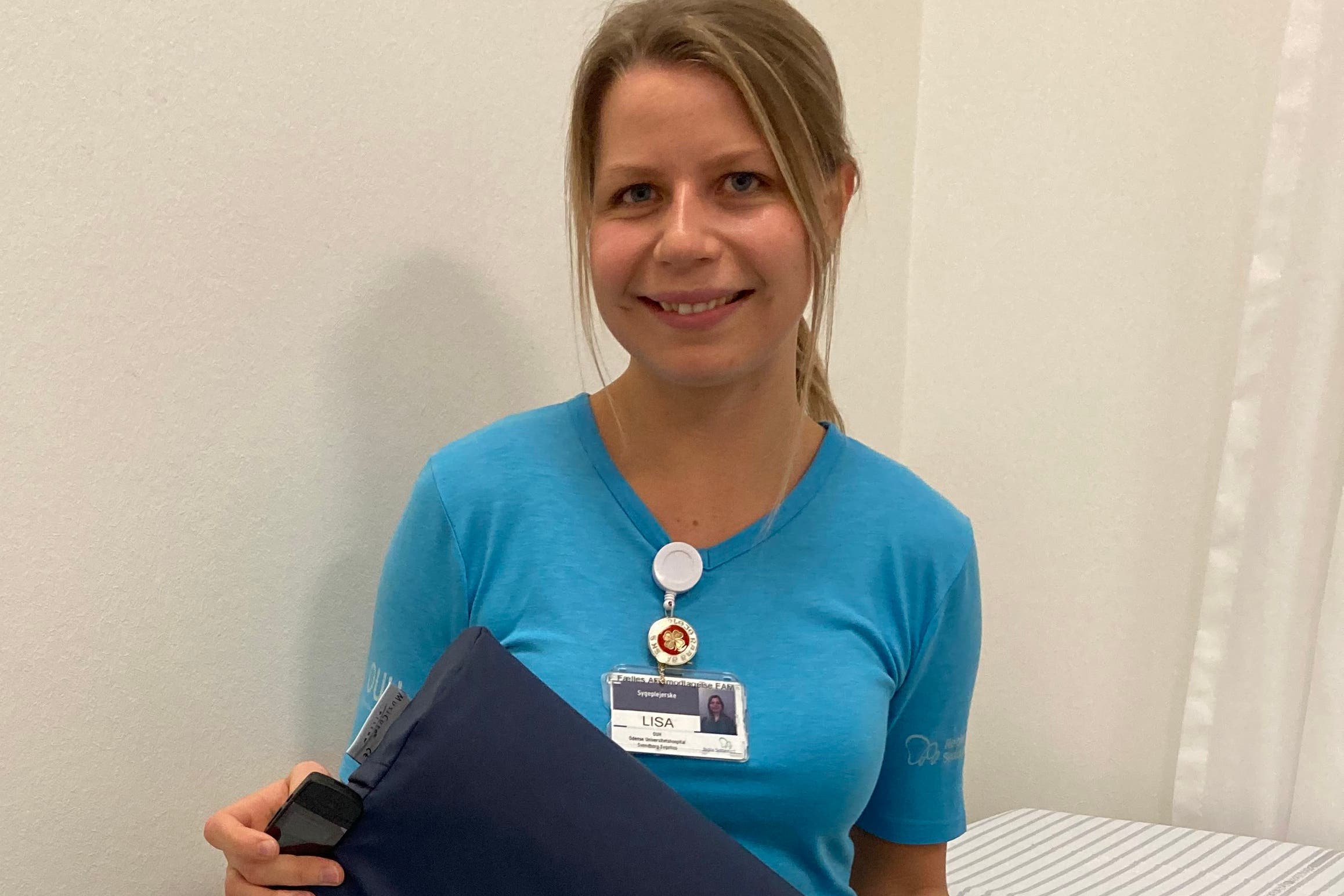Music pillow reduces stress and pain in A&E, study suggests
Researchers suggest listening to some music allowed patients to have a break from the hospital environment.

Your support helps us to tell the story
From reproductive rights to climate change to Big Tech, The Independent is on the ground when the story is developing. Whether it's investigating the financials of Elon Musk's pro-Trump PAC or producing our latest documentary, 'The A Word', which shines a light on the American women fighting for reproductive rights, we know how important it is to parse out the facts from the messaging.
At such a critical moment in US history, we need reporters on the ground. Your donation allows us to keep sending journalists to speak to both sides of the story.
The Independent is trusted by Americans across the entire political spectrum. And unlike many other quality news outlets, we choose not to lock Americans out of our reporting and analysis with paywalls. We believe quality journalism should be available to everyone, paid for by those who can afford it.
Your support makes all the difference.People waiting in A&E for urgent surgery feel calmer and experience less pain if they are given a music pillow, new research suggests.
According to the small study, there was a significant association between listening to music and patients’ report of reduced pain and better relaxation and wellbeing.
Researchers suggest listening to some music allowed patients to have a break from the hospital environment.
Fourteen men and 16 women waiting for urgent surgery at a Danish hospital were invited to take part in the study.
The patients described both physical and mental well-being while listening to the music
Aged between 18 and 93, they were waiting for surgery for health emergencies such as appendicitis, intestinal obstruction, abscess or inflammation of the gall bladder.
Ms Lisa Antonsen, a nurse in the Department of Emergency Medicine at Odense University Hospital, offered them a music pillow for 30 minutes during the waiting time.
The pillow contained a speaker with an MP3 player plugged into it. The MP3 player had a program of specially composed music.
Patients were asked to rate their pain, relaxation and wellbeing from one to 10 before and after using the pillow.
After listening to music, 15 patients were interviewed about the experience.
Presenting her research at the European Emergency Medicine Congress, Ms Antonsen said: “We found that while using the music pillow, the patients experienced a decrease in pain from an average score of 4.8 to 3.7.
“Their relaxation improved from an average of 4.6 to 7.6, and their feeling of general well-being increased from an average score of 4.3 to 6.6.
“The statistical results demonstrated a positive association between music and acute pre-operative patients’ self-reported pain, relaxation and general well-being.
“The patients described both physical and mental well-being while listening to the music.
“They felt relaxed and found themselves thinking about something other than the pain and the worries related to the surgery.
“Thus, the music session provided a break from the acute hospital environment.”
Music helps people relax at the best of times. Now this study suggests it can do the same during stressful times too
One 65-year-old woman told the researchers: “It made me relax and, for a moment, I did not think about being here at the hospital.
“I just came to think about being outside in nature listening to birdsong. For a moment, something else happened.”
Ms Antonsen spoke about one woman in the emergency department in November 2020.
She said: “She was upset. Her face was tense and you could tell she had just cried. She said that it had been a tough day.
“During the music session, she lay calmly in bed with her eyes closed. When the music session ended, she said, ‘not already’. Then she smiled at me. She seemed to be more comfortable.”
Ms Antonsen suggested that in order for the music to be most effective, patients should listen to it undisturbed and therefore attention needs to be paid to the current organisational structure of emergency departments in order to implement music interventions successfully.
The music pillow continues to be used in Ms Antonsen’s emergency department and she hopes to make it permanent.
Professor Youri Yordanov from the St Antoine Hospital emergency department in France, is chairman of the EUSEM 2022 abstract committee and was not involved in the research.
He said: “Initiatives such as this, that appear to contribute to a reduction in patients’ anxiety and also the pain they are experiencing, are very welcome.
“Music helps people relax at the best of times. Now this study suggests it can do the same during stressful times too. We look forward to larger studies that may confirm the findings of this pilot study.”
The observational study, which has not been peer-reviewed, did not randomly select the patients to have a music pillow or not, and cannot show that access to a music pillow causes the improvements in pain, relaxation and well-being, only that it is associated with it.